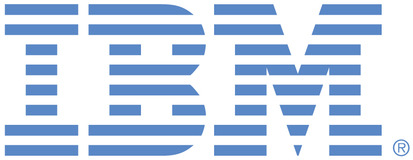
This is an IBM Automation portal for Cloud Management, Technology Cost Management, Network Automation and AIOps products. To view all of your ideas submitted to IBM, create and manage groups of Ideas, or create an idea explicitly set to be either visible by all (public) or visible only to you and IBM (private), use the IBM Unified Ideas Portal (https://ideas.ibm.com).
Shape the future of IBM!
We invite you to shape the future of IBM, including product roadmaps, by submitting ideas that matter to you the most. Here's how it works:
Search existing ideas
Start by searching and reviewing ideas and requests to enhance a product or service. Take a look at ideas others have posted, and add a comment, vote, or subscribe to updates on them if they matter to you. If you can't find what you are looking for,
Post your ideas
Post an idea.
Get feedback from the IBM team and other customers to refine your idea.
Follow the idea through the IBM Ideas process.
Specific links you will want to bookmark for future use
Welcome to the IBM Ideas Portal (https://www.ibm.com/ideas) - Use this site to find out additional information and details about the IBM Ideas process and statuses.
IBM Unified Ideas Portal (https://ideas.ibm.com) - Use this site to view all of your ideas, create new ideas for any IBM product, or search for ideas across all of IBM.
ideasibm@us.ibm.com - Use this email to suggest enhancements to the Ideas process or request help from IBM for submitting your Ideas.

This is still an issue. Please take a look.
The files in /tmp/.instana created with 777 permissions cause failures in our Tenable compliance scans
Ensure no world writable files exist
CIS Red Hat Enterprise Linux 7 Benchmark v3.1.1
Source: Tenable Security Center"6.1.10 Ensure no world writable files exist" : [FAILED]
Unix-based systems support variable settings to control access to files. World writable files are the least secure. See the chmod(2) man page for more information.
Rationale:
Data in world-writable files can be modified and compromised by any user on the system. World writable files may also indicate an incorrectly written script or program that could potentially be the cause of a larger compromise to the system's integrity.
Solution:
Removing write access for the 'other' category ( chmod o-w ) is advisable, but always consult relevant vendor documentation to avoid breaking any application dependencies on a given file.
See Also: https://workbench.cisecurity.org/files/3393
Reference: 800-171|3.1.5,800-53|AC-6,CIS_Recommendation|6.1.10,CN-L3|7.1.3.2(b),CN-L3|7.1.3.2(g),CN-L3|8.1.4.2(d),CN-L3|8.1.10.6(a),CSCv7|5.1,CSCv8|3.3,CSCv8|4.1,CSF|PR.AC-4,CSF|PR.DS-5,ITSG-33|AC-6,LEVEL|1A,NESA|T5.1.1,NESA|T5.2.2,NESA|T5.4.1,NESA|T5.4.4,NESA|T5.4.5,NESA|T5.5.4,NESA|T5.6.1,NESA|T7.5.3,NIAv2|AM1,NIAv2|AM23f,NIAv2|SS13c,NIAv2|SS15c,PCI-DSSv3.1|7.1.2,PCI-DSSv3.2|7.1.2,QCSC-v1|5.2.2,QCSC-v1|6.2,QCSC-v1|13.2,SWIFT-CSCv1|5.1,TBA-FIISB|31.4.2,TBA-FIISB|31.4.3
Tenable CIS Red Hat Enterprise Linux Benchmark security scans report failures for
"6.1.10 Ensure no world writable files exist" : [FAILED]
Rationale:
Data in world-writable files can be modified and compromised by any user on the system. World writable files may also indicate an incorrectly written script or program that could potentially be the cause of a larger compromise to the system's integrity.
See Also: https://workbench.cisecurity.org/files/3393
Reference: 800-171|3.1.5,800-53|AC-6,CIS_Recommendation|6.1.10,CN-L3|7.1.3.2(b),CN-L3|7.1.3.2(g),CN-L3|8.1.4.2(d),CN-L3|8.1.10.6(a),CSCv7|5.1,CSCv8|3.3,CSCv8|4.1,CSF|PR.AC-4,CSF|PR.DS-5,ITSG-33|AC-6,LEVEL|1A,NESA|T5.1.1,NESA|T5.2.2,NESA|T5.4.1,NESA|T5.4.4,NESA|T5.4.5,NESA|T5.5.4,NESA|T5.6.1,NESA|T7.5.3,NIAv2|AM1,NIAv2|AM23f,NIAv2|SS13c,NIAv2|SS15c,PCI-DSSv3.1|7.1.2,PCI-DSSv3.2|7.1.2,QCSC-v1|5.2.2,QCSC-v1|6.2,QCSC-v1|13.2,SWIFT-CSCv1|5.1,TBA-FIISB|31.4.2,TBA-FIISB|31.4.3